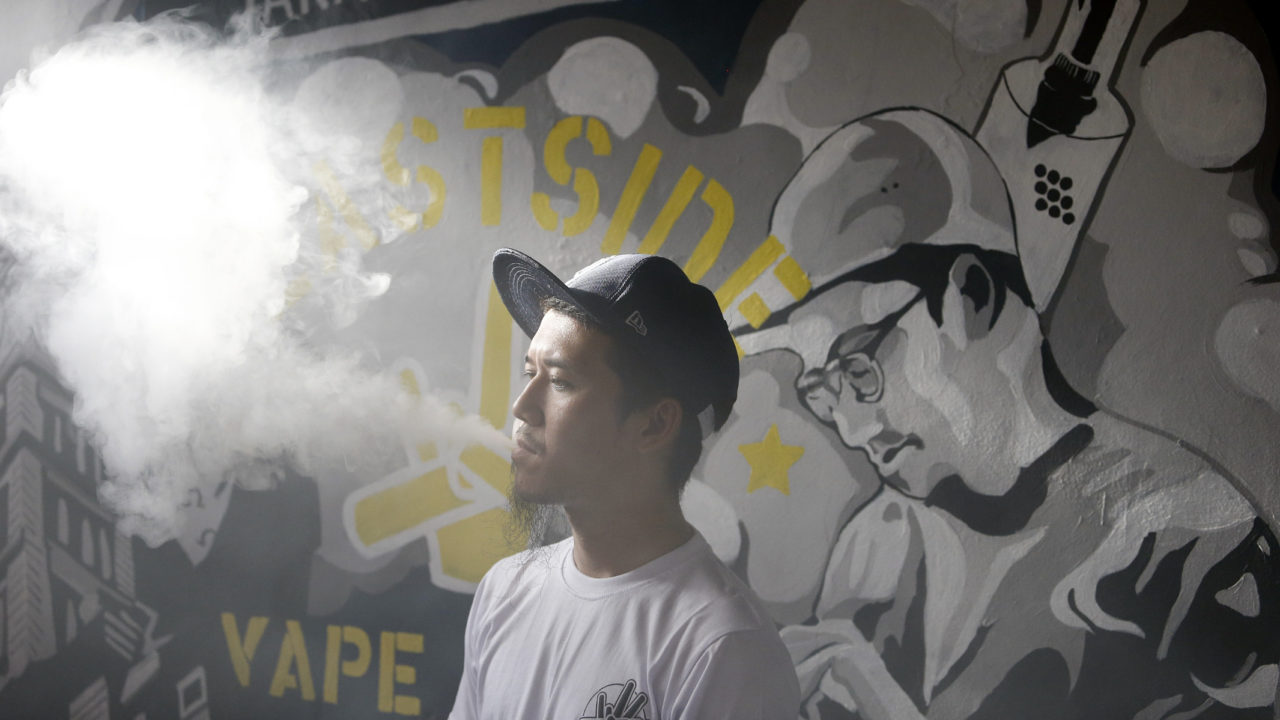
The Ministry of Finance estimates that the government may collect up to Rp 3 trillion ($207 million) in additional revenue next year from a new excise on tobacco extract, or vaping liquid, commonly used in electronic cigarettes.
While Indonesians have been puffing on e-cigarettes since 2013, the government only imposed an excise on vaping liquid on July 1. Under a new regulation, the liquid is subject to a 57 percent excise tax, more than four times the maximum excise on regular cigarettes.
The government requires up to 200 domestic producers to start attaching excise ribbons to the product containers and pay excise on it by Oct. 31. Only vaping liquids containing tobacco extract or nicotine are subject to the excise.
“If there are any businesses not using the ribbon after the transition deadline, we will seize it,” said Heru Pambudi, director general of customs and excise at the Ministry of Finance.
According to Noegroho Wahyu, acting director of excise, only three producers are currently registered but the government expects the remaining producers to do so before the deadline.
The government will likely only collect between Rp 50 billion and Rp 70 billion in additional revenue from the new excise this year, but it eyes potential revenue of around Rp 3 trillion per year once all manufacturers are registered, Noegroho said.
Vaping liquid is the latest commodity to attract excise as part of government efforts to curb people’s consumption of harmful substances. Indonesia is also considering to tax on plastic bags and soft drinks, but the government has yet to make a decision on the matter.
Indonesia collected Rp 151 trillion in excise – mainly from cigarettes – last year, accounting for 9.1 percent of total state revenue.
The government considers several aspects, including public health, impact on the industry and tobacco and clove farmers, in determining excise tariffs on tobacco products, Noegroho said.
With vaping liquid subject to the maximum rate for tobacco-related products, there may not be any further increases in the future.
Aryo Andrianto, chairman of the Indonesian Personal Vaporizer Association (APVI), said the excise rule means the government has officially acknowledged and provided the industry with legal certainty.
Vaping liquid producers meanwhile plan to only increase their prices by a maximum of 20 percent to soften the blow on consumers, Aryo said.
“They don’t mind [the increase],” he said.
APVI members also hope the government may be more willing to support the industry’s export efforts.
Deni Syarifa, chairman of the E-Liquid Micro-Entrepreneurs Association (APeM), estimates that manufacturers can export up to 2 million bottles of vaping liquid per month.
“There is currently demand for around 5,000 to 10,000 bottles per month from just one country,” Deni said, adding that producers plan to ship the liquid to countries in Asia, Central America and Europe.